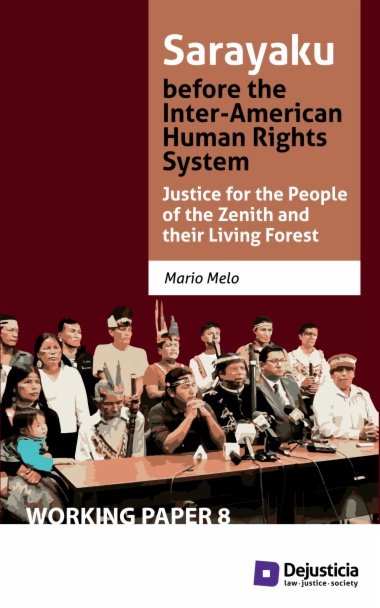

How was it possible for an indigenous people in the middle of the Amazon to protect their life and territory from oil exploitation? What was the response of the Government of Ecuador to the claims of the Sarayaku people? How is a human rights strategy developed at different geographical levels? In this text, Mario Melo Cevallos, lawyer of the Kichwa people of Sarayaku, addresses these questions by presenting his version of the history of resistance and mobilization of the indigenous people before the State plans to exploit the oil that was in the heart of the Amazon. From the jungle, through the national courts, to the inter-American human rights system, the author shows the different sources of political and legal mobilization used by the people. Based on the work of more than a decade that Melo has done with the descendants of the jaguar, the book combines anecdotal references with judicial decisions and social mobilizations to show the story behind one of the most important sentences of the Inter-American Court of Human Rights. Undoubtedly, the case of the Sarayaku people is a symbol for the other indigenous peoples of the Global South. Your experience, we hope, will serve as an example for all indigenous peoples who mobilize against the expansion of the extractive border over their territories. Descripción tomada de: https://www.dejusticia.org/publication/the-sarayaku-and-the-inter-american-system-on-human-rights-justice-for-the-medio-dia-people-and-their-living-jungle/